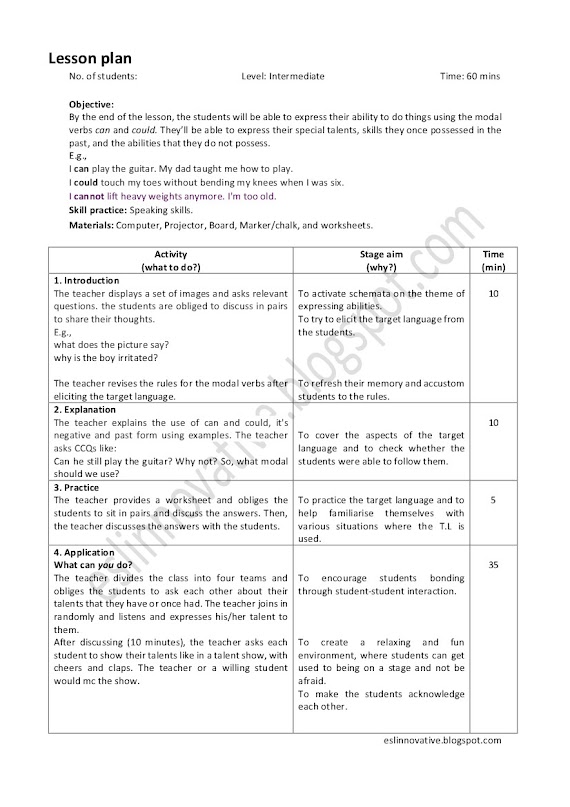Modals of ability
Model verbs
can & could
are used to express ability.
It is used
as an expression to show that you have: a special skill, a talent, the
strength to do something.
E.g.,
I can swim like a pro.
It is also
used to express the ability to do a specific task.
E.g.,
I can’t help you. I am busy.
Can
Can is used to
express the ability you currently possess (in the present).
E.g.,
I can play guitar. My dad taught me to play.
I have been
working out. I can now lift 100 kg.
I can run faster than you. Do you wanna see?
Let's race.
Cannot (negative form)
Cannot is the
negative form of can. Cannot must be written and pronounced as a
single word. Contracted form – can’t.
Can not ❌
Cannot ✔️
Cannot is used to
express the inability to do something.
E.g.,
I cannot lift heavy weights anymore. I’ve become
old.
I can play violin, but I cannot play guitar.
I can’t cook today. I’m exhausted from all the work in the office.
Teachers notes: can is a tricky modal
verb. It can be used in almost any type of situation like permission,
volunteering, etc., But it pertains to its ability expressing quality.
E.g.,
Can I go outside?
You can but you may not.
Here, the request is rejected but the
person asking is recognized as being capable of going out.
Could
Could is used to
express the ability one possessed in the past but no longer in the
present.
E.g.,
I could touch my toes without bending my knees
when I was six.
Could not (negative form)
Could not is used to express the ability that one did not possess to do a task in the past. Contracted form – couldn’t.
E.g.,
I couldn't speak until I was 4. My parents were
very worried.















0 comments:
Post a Comment